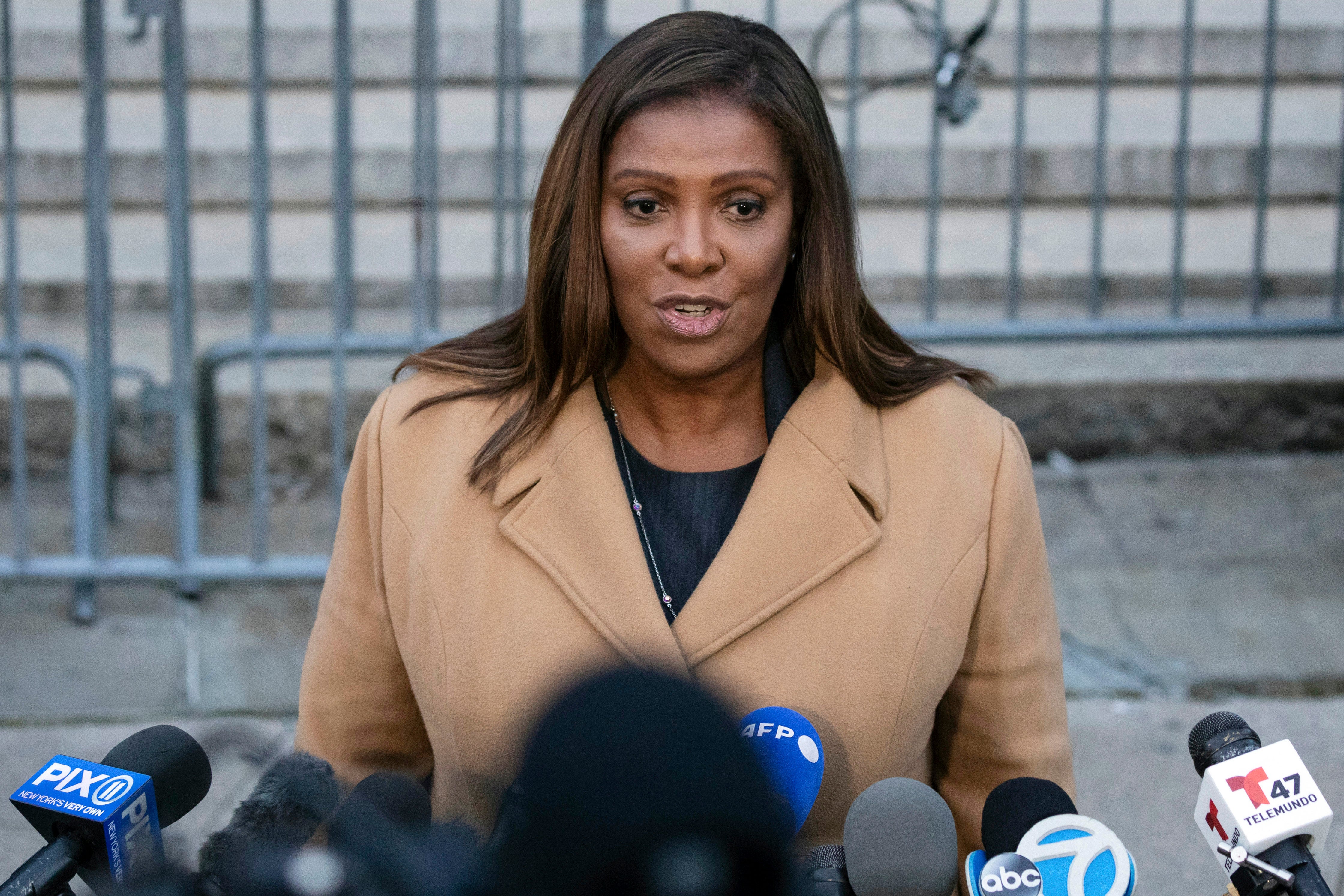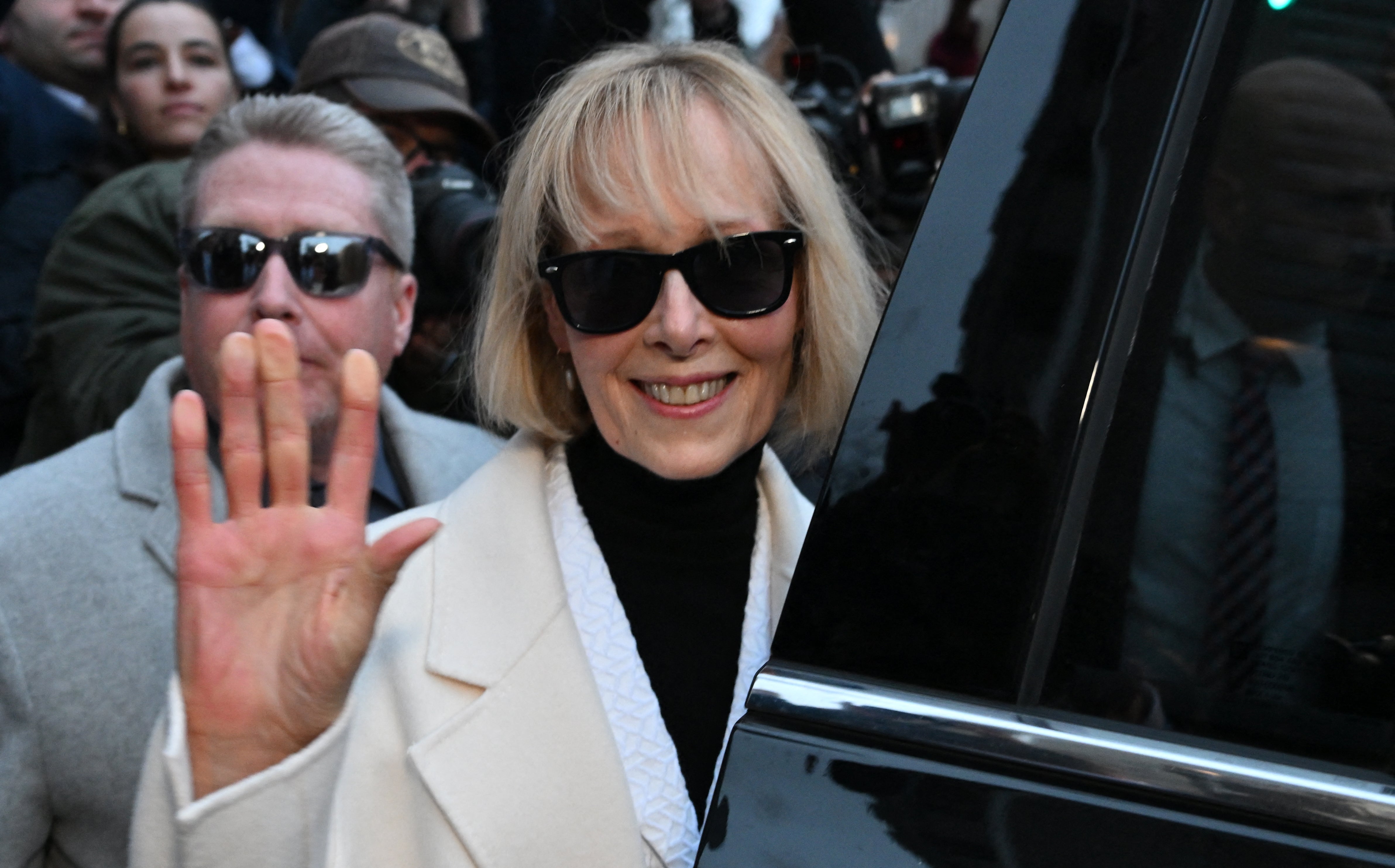How much does Trump owe so far in each of his court cases?
Republican presidential candidate ordered to pay out more than $500m in two separate judgements
Donald Trump is facing a potential cash crunch after being ordered to pay out more than $500m by two separate New York judges in two unrelated court cases just weeks apart.
Mr Trump’s disastrous start to 2024 in the courtroom stands in marked contrast to his bid for the Republican presidential nomination, which has been remarkably smooth and has seen him sail to victory in Iowa, New Hampshire, Nevada and South Carolina as all but one of his challengers fell away, leaving him almost certain to square off against Joe Biden again in November.
But with four criminal indictments and 91 felony charges hanging over him, Mr Trump’s increasingly costly and myriad legal entanglements could yet get the better of him.
Voters have repeatedly indicated in polling that they could not support the Republican if he were to be convicted of a crime before Election Day (he has already been found liable for sexual assault in a civil case) and some of the cases against him cut to the core of his appeal as a public figure.
Chief among them stands the New York fraud case in which he and several Trump Organization associates were found guilty of knowingly inflating the value of company assets in order to obtain favourable loans from banks and insurance brokers, a ruling that, in addition to being mightily expensive, contradicts his presentation of himself as a successful businessman, the basis of his persona on the NBC reality show The Apprentice between 2004 to 2015, which in turn provided the platform for his political popularity.
Mr Trump’s next major court date is Monday 25 March, when Manhattan district attorney Alvin Bragg’s “hush money” trial commences, in which the candidate stands accused of falsifying his business records to conceal cash payments made to porn star Stormy Daniels and ex-Playboy model Karen McDougal during the 2016 election to ensure their silence about sexual encounters they are alleged to have had with him a decade earlier.
Cases brought by the Justice Department special counsel Jack Smith accusing Mr Trump of plotting to overturn the 2020 election result and illegally retaining classified documents at his Florida home are due to follow, as is another brought by Fani Willis, the district attorney of Fulton County, Georgia, accusing him and 18 others of engaging in racketeering – all of which threaten to eat into his time on the campaign trail, further sully his reputation and drive up his legal expenses.
With appeals pending in the two New York cases, here’s a look at what Mr Trump owes so far.
New York fraud ruling – $464m and counting
After an 11-week trial in the New York Superior Court, Judge Arthur Engoron found Mr Trump, his adult sons Donald Trump Jr and Eric Trump and former associates Allen Weisselberg and Jeffrey McConney guilty of misrepresenting the worth of company assets between 2011 and 2021 in a case brought against them by state attorney general Letitia James.
Judge Engoron duly ruled on 16 February that the co-defendants must pay $355m in fines after they “submitted blatantly false financial data” to obtain favourable rates on brand-building properties, the total rising to $454m once interest is included and continuing to accrue at a rate of 9 per cent or approximately $120,000 per day, placing it closer to $464m at the time of writing (Tuesday 27 February).
The judge also banned Mr Trump from running a company in New York for three years and his sons from doing so for two years and appointed former US District Court judge Barbara Jones to serve as a court-ordered monitor overseeing the running of the Trump Organization, the first non-member of the family to guide the real estate conglomerate since its founding by Mr Trump’s father Fred Trump in 1927.
The presidential contender’s legal team appealed the ruling on 26 February but he is nevertheless expected to put up the entire amount in either cash or bonds within 30 days – meaning by 25 March, the same day his hush money trial is set to commence – having already had a request for a stay rejected by Judge Engoron.
How Mr Trump intends to do this remains to be seen.
The politician has been notoriously secretive about the true extent of his personal fortune (Forbes estimated his net wealth at around $2.6bn last September) but he is thought to have much of it tied up in real estate.
He claimed during a taped deposition last year to have more than $400m in cash available but that would not be enough to meet his present commitments.
He could instead be forced to borrow against one of the 27 mortgage-free properties he owns or even sell off some of his assets to raise the capital (another blow to the public image he likes to project) or, alternatively, seek a third-party bond from a surety company, which would mean even further expense in the shape of additional fees.

That approach, however, might not be so easy, given that bond companies do not typically handle such large amounts of money and because of suspicion about Mr Trump’s business practices.
As New York attorney Mark C Zauderer told The Washington Post: “If the guy can give phoney financial statements, he can give phoney information to the bonding company.”
Mr Trump might also be tempted to draw funds from his political action committees – although it is doubtful whether they have sufficient resources to hand and doing so could risk breaking campaign finance rules – or even attempting to crowdfund the total from his loyal MAGA supporters.
A GoFundMe set up in his name to raise the money is currently stubbornly short of the $1.3m-mark.
For her part, Ms James has warned Mr Trump that she will be prepared to seize his assets if he fails to meet the conditions imposed on him.
“If he does not have funds to pay off the judgement, then we will seek judgement enforcement mechanisms in court, and we will ask the judge to seize his assets,” she told ABC News recently.
“We are prepared to make sure that the judgement is paid to New Yorkers, and yes, I look at 40 Wall Street each and every day.”
She has clearly enjoyed herself by posting the exact amount he owes the city of New York on X every day, reporting the daily raise in interest with evident glee.
On Sunday 25 February, for instance, she helpfully informed us that the precise amount is: +$114,553.04 = $464,805,336.70
A new website, Trump Debt Counter, built by Democratic activist Johnny Palmadessa, also provides live tracking information on precisely how much Mr Trump owes, the total climbing by a matter of cents every single second.
E Jean Carroll defamation ruling – $83.3m
Before the fraud trial verdict, Mr Trump had already been ordered to pay defamation damages to the retired writer E Jean Carroll on 26 January.
In May 2023, Mr Trump was found liable in a civil trial for sexually assaulting Ms Carroll in the dressing room of Manhattan’s Bergdorf Goodman department store in the mid-1990s and then defaming her by lying about it after she first made the allegation in her memoir What Do We Need Men For?, which was published in 2019 during Mr Trump’s presidency.

His subsequent denials, claiming never to have even met his accuser and insisting she was not his “type”, saw him fined $5m at the time and ultimately led to a second civil defamation trial presided over by Judge Lewis Kaplan that ended last month with a nine-member jury deciding Mr Trump should pay Ms Carroll a sum far in advance of the $10m she and her lawyer Roberta Kaplan (no relation) had asked for as compensation for the reputational damage she had sustained.
They duly awarded Ms Carroll $65m in punitive damages plus more than $18.3m in compensatory damages.
Mr Trump’s lawyer Alina Habba moved on 23 February to try to delay putting up that money by a further 30 days, arguing that the penalty was excessive and likely to be reduced, which the judge declined to impose two days later, saying Ms Carroll’s lawyers were entitled to have their say.
The latter camp has not ruled out further legal action against Mr Trump, who has since again invoked Ms Carroll’s name at his campaign rallies, repeating his insistence that he has never met her and claiming her accusations are part of a wider conspiracy against him being orchestrated by President Biden to prevent him winning the presidency again.
Join our commenting forum
Join thought-provoking conversations, follow other Independent readers and see their replies
Comments
Bookmark popover
Removed from bookmarks